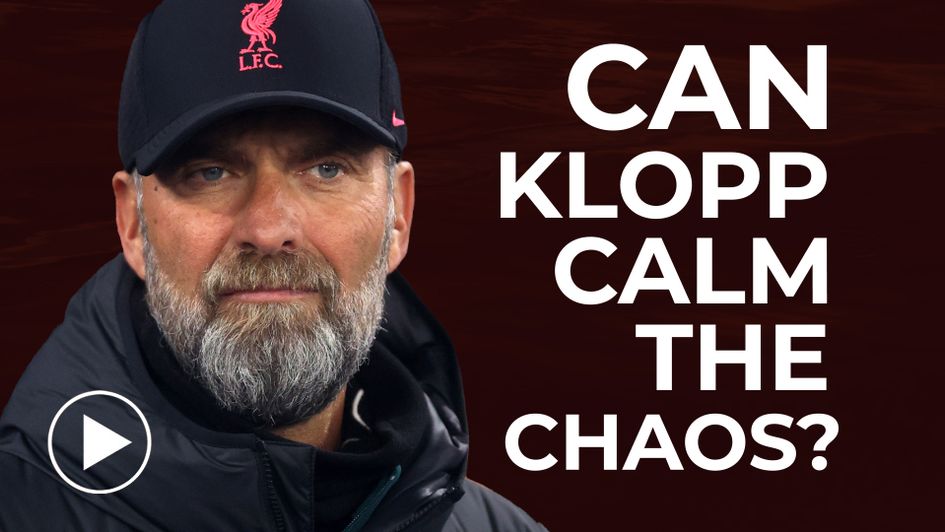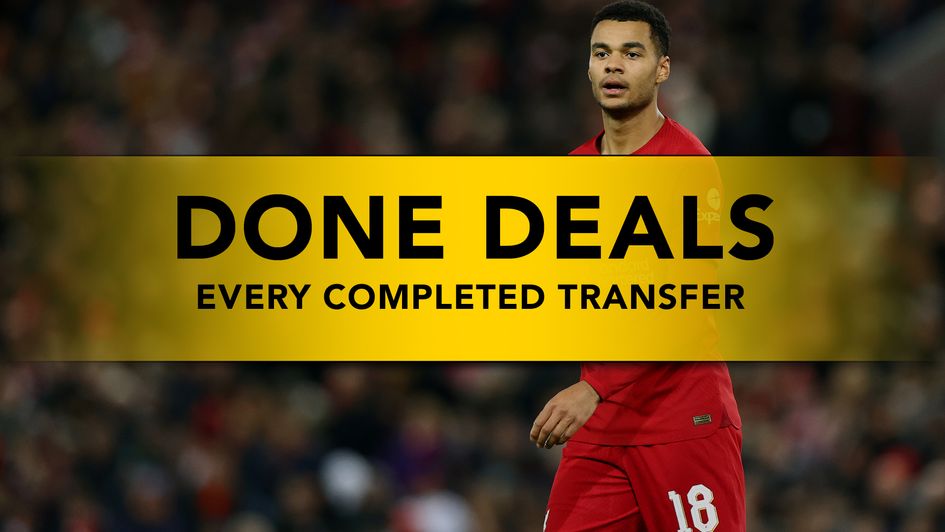With Liverpool looking all at sea this season, we highlight what has happened to the Reds this season and why they are struggling so much.
Liverpool’s season could well be over before it truly began.
On paper, there is still everything to play for. The Reds have 20 Premier League matches left to make up a 10-point gap on the team currently occupying the final Champions League spot.
This is a team that managed to cut a 14-point gap down to just one in pursuit of the title last season. They also went on a 10-match unbeaten run at the end of 2020/21 to claim an unlikely third-place finish.
This team, under this manager, has the capacity to put together winning streaks. All it would take is a run of positive results and Jurgen Klopp’s side would be back in contention in the race for a top-four finish.
But this time around feels different.
Liverpool are far from the settled team of yesteryear. They are dysfunctional and the manager is, to put it bluntly, in denial.
Following the 3-0 loss to Brighton on Saturday, Klopp said: "I have no sign for this performance before the game but that's how it is sometimes. There's nothing [to say] why I thought it could happen."
Brighton 3-0 Liverpool

He couldn’t see it coming, but everyone else could.
Since returning from the World Cup break, the Reds have conceded 13 goals in their six outings if you include the Carabao Cup clash with Manchester City.
The Brighton result was not an anomaly.
Though Liverpool picked up maximum points against Aston Villa and Leicester, both teams waltzed through the midfield to carve out openings. Villa finished with an expected goals (xG) total of 1.70 while the Foxes created chances worth 1.31 xG.
Ollie Watkins spurned decent chances in the game at Villa Park, while Andrew Robertson was required to make a last-gasp block to stop Harvey Barnes from adding a Leicester second at Anfield with the game evenly poised at 1-1 after the visitors played through the Liverpool midfield with ease.
Brentford then had the ball in the back of the net on five occasions, though two were ruled out for offside, while Wolves also had a third goal chalked off.
It does highlight how lacklustre the Reds have been in recent games.

Klopp tried something different against Brighton and it backfired rather spectacularly. Speaking afterwards, the German tactician said: "The problems were the same as last week when we spoke about it.
"We don’t win the key battles on the pitch at key challenges and we give the ball away too easily. It’s difficult to organise protection for losing balls that you should not lose. It’s fully my responsibility. I had an idea with a different formation and it didn’t work out. Sorry.
"With a man-marking system, you have to move, you have to pass. We said ‘okay, bring on fresh legs and let’s play a little bit’. In the end nothing worked out today. In little moments everyone could see how close we were to causing more problems than we did.”
Liverpool lined up in their usual 4-3-3 shape but it was quickly apparent that Thiago was higher up the pitch. He was looking to disrupt Brighton’s build-up and was taking up spaces between Moises Caicedo and Alexis Mac Allister.

When the Spanish playmaker stepped up, Alex Oxlade-Chamberlain would drop into a midfield role, abandoning his left-wing position. It meant that, in theory, Liverpool still had three in the middle third.
This fluidity, however, was one of the reasons Liverpool failed to win as many challenges as Klopp would have liked. Players were caught in limbo, unable to block passing lanes and then not in the right position to recover.
It allowed Brighton to carve out openings at will at the Amex. The hosts created three big chances and had an xG of almost two (1.96). An example of this can be seen below.

Lewis Dunk is able to play an easy pass into the feet of Caicedo with neither Mohamed Salah or Cody Gakpo quick enough to block that option.
Ideally, the Reds would force Brighton into funnelling the ball into wide areas when building out from the back. That was obviously the plan with Liverpool having more bodies centrally.

Again, Brighton are able to play an easy pass into an area Liverpool don’t want the hosts to play in.
Jordan Henderson doesn’t block off the pass inside to Mac Allister and Pervis Estupinan is able to play a simple ball into the feet of the World Cup winner.
Fabinho was initially looking to block off the pass into Adam Lallana but then has to react to the Brighton No10. He isn’t able to and the Argentine maestro returns the ball to Estupinan, who has run past Henderson at this stage.

In the space of eight seconds, Liverpool go from having all outfield players behind the ball, to having just four players between the man in possession and Alisson Becker.
Kaoru Mitoma is hugging the touchline and pinning Trent Alexander-Arnold, meaning the right-back can’t step up to press Estupinan.
Lallana is occupying Joel Matip while Evan Ferguson has positioned himself between Ibrahima Konate and Robertson, meaning the Scotland captain has to cover and this leaves the Liverpool left vacant.
Brighton’s left-back eventually switches play to Solly March and he’s in acres of space on the right. His effort is eventually blocked by the retreating Robertson.

This sort of thing happened time and time again, with Brighton taking advantage of Liverpool’s poorly executed press. And the tactics on the day did nothing to help the Reds. Not just defensively, but offensively too.
The away side finished the match with 42% possession. It was much lower than that until Brighton eased off at 2-0. Klopp’s side managed just six shots in total and landed two of those on target.
This was likely a consequence of Thiago’s tweaked role.
The former Bayern man is a controller. He sets the tempo for Liverpool and he’s usually at the base of things. In this game, he was pushed further forward and away from the build-up. He attempted just 47 passes, significantly down on his season average of 66.
With him away from the first phase of play, Henderson was tasked with more responsibility. The Liverpool skipper found a teammate just 79% of the time.
Now, that is not far off his season average (82% in the Premier League) but he’s usually higher up the pitch so it isn’t as much of an issue.
However, when in the first phase of the build-up, he ideally needs to be completing passes and ensuring Liverpool keep the ball. It is what Thiago usually does.
This was Klopp’s decision though, to ultimately switch the two midfielders, and it didn’t go to plan.
In his press conference on Friday, the one-time BVB boss said not every problem can be solved by dipping into the transfer market.
If the Reds aren’t able to go shopping for reinforcements in midfield this month, it is on him to do something tactically to solve some of the issues the 2019/20 champions are facing on a weekly basis.
If he can’t, Liverpool’s season is done.











